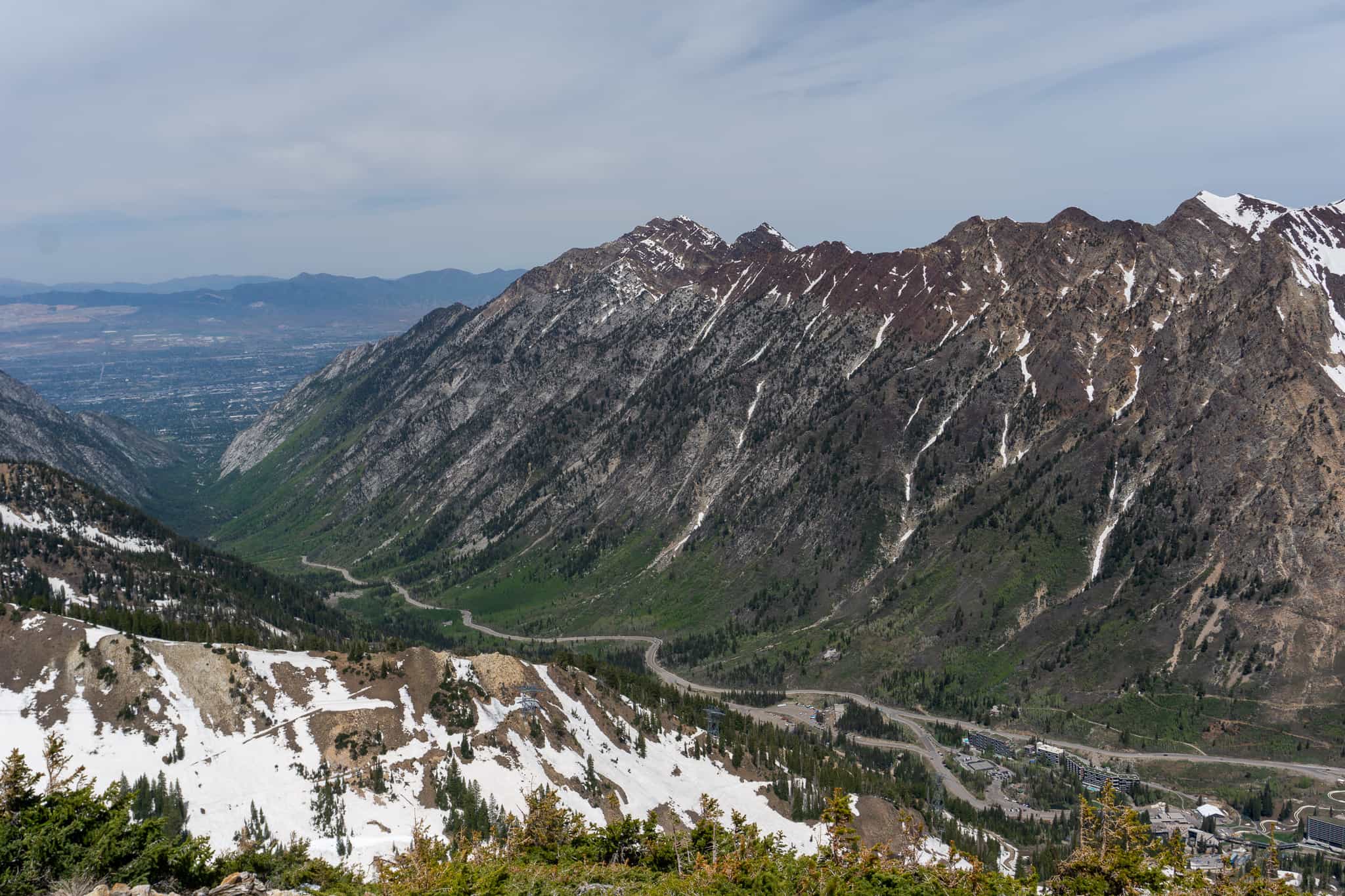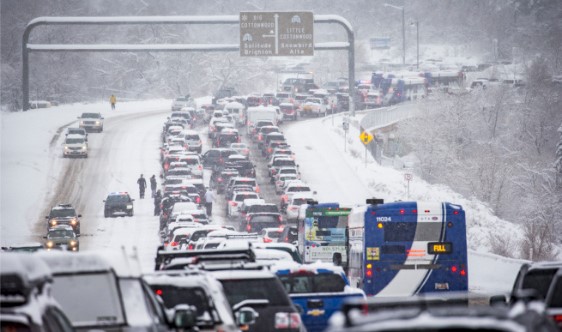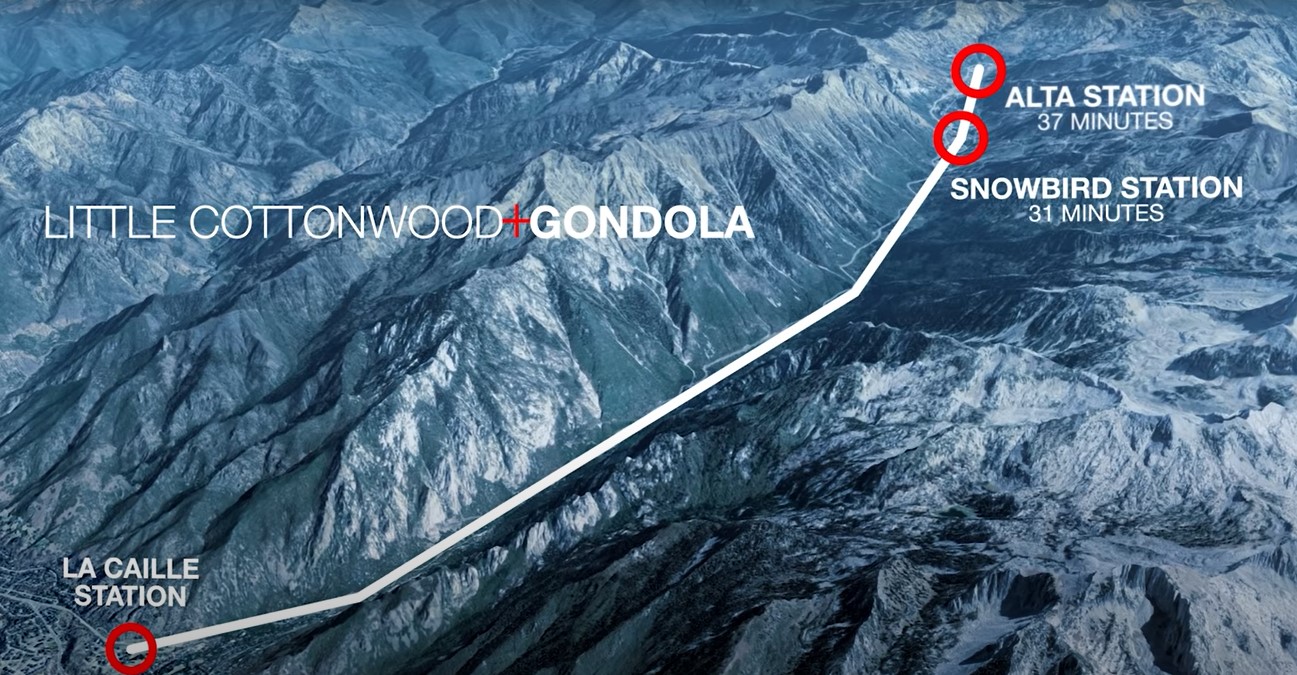
In a news conference yesterday, Utah Governor Spencer Cox spoke out in support of The Utah Department of Transportation’s (UDOT) favored solution to the transportation crisis affecting the Little Cottonwood Canyon—the controversial gondola.
Cox claimed that whatever solution is implemented will cost a large amount of money—the gondola is expected to cost at least $500 million—and he is in favor of the gondola.
“I’m on record a long time ago saying that I think the gondola is a good idea.”
Utah Gov. Spencer Cox
UDOT has been working on a solution to the traffic that plagues Little Cottonwood Canyon for some time now. On August 31st, they officially announced they prefer a gondola as the top choice to achieve that goal, saying the gondola meets the “need and provides the highest travel reliability for the public.”
The recommendation came after a thoughtful environmental impact study (EIS) that considered both the gondola and an enhanced bus system. The public comment period for the EIS ended on Monday, October 17th, at 11:59 pm. Click here for the Final EIS Summary Fact Sheet.
UDOT is considering implementing a toll of $25-$30 to travel up the LCC to the Alta and Snowbird ski areas as a short-term solution.
A closer look at the two groups promoting and opposing the gondola
The gondola concept is divisive, with many people strongly supporting it or defiantly against it. Two organizations on polar opposite sides have emerged in the debate for or against the gondola. They are Gondola Works and Friends of Little Cottonwood Canyon.
Gondola Works
Gondola Works is the group that supports the gondola. It was started by Snowbird Resort, which would benefit significantly from the gondola. It is funded by other local companies and ski resorts, including Alta Ski Area, which would be another benefactor. The gondola would deliver skiers and riders right to their base areas. Last year Snowbird quietly purchased the land where the potential gondola would be built. This acquisition was to ensure the land would be available. It has said it would sell the land at cost or donate it if the gondola is chosen.
Gondola Works has produced detailed illustrations and motivating commercials to prop up the gondola. Its marketing efforts have put the project at the forefront of the public eye. The ad placement has been on TV, billboards, social media, and even direct mail. You can view one of its advertisements below.
Its primary arguments for the gondola are a quiet, clean option with pristine canyon views. It will be zero-emissions, carbon-neutral, high-capacity, and sustainable. The gondola would be able to transport riders during snowy weather conditions when the traffic is the worst, significantly increasing safety. It could also run when the road is closed due to avalanche danger. It claims cleaner air, cleaner water, and less road construction are also reasons to be in support.
Gondola Works touts that the experience of getting to the greatest snow on earth should also be great.

Friends of Little Cottonwood Canyon
On the other side are Friends of Little Cottonwood Canyon, who oppose the gondola. It was started in 2021 as a nonprofit. It is funded by donors and has a political action committee (PAC) that distributes money to its preferred political candidates. Knowing that the legislature will have the final say on the project, its efforts have been focused on lobbyists and public ad campaigns.
Reasons for opposing the gondola include the immense cost taxpayers would have to pay. It is estimated that it would cost over $500 million. Some experts believe it could cost even more. This is still projected to cost less than an alternative option of an expanded bus system, which the group also opposes.
Another argument is that the gondola would be invasive and take away from the area’s natural beauty. Additionally, it would only benefit developers and two private ski resorts. You can view one of Friends of Little Cottonwood Canyon’s advertisements below.
https://youtu.be/TgIVfj8x7WE
Bottom line
This is a massive decision for lawmakers and UDOT. It affects so many people and comes at a very high cost. Let’s hope they get it right.

I’ve been skiing Utah, locally and as a visitor, for 30 years and this gondola looks like a boondoggle. It’s sure to have cost overruns, it will be a blight on the canyon, and it seems like a bad investment in the face of global warming—weird seasons like last year where it barely snowed in January and February may be increasingly common.
What is so bad about the ski bus? It’s included with your Ikon pass, just tap and go, and the other payment options are easy, including a smartphone app. During the pandemic when UTA decided to limit each bus to half capacity, they ran buses every 15 minutes during the peak periods. So average wait time was 7½ minutes. If you are starting at the end of a line the bus usually shows up 5 minutes early and they let you on immediately so you barely have to stand in the cold.
Yes, I heard about the shortage of bus drivers. But that is easily addressed with increased compensation. Maybe the fare goes up a buck and maybe the Ikon pass goes up a couple of bucks, but so what?
My guess is that the ski bus service could be significantly enhanced for decades, i.e. every 15 minutes at peaks times, added routes, single resorts stops (e.g. just Snowbird or Alta) to save time at the top of the mountain, all for far less than the cost of the gondola.
This process has been really weird. If they seriously want to mitigate traffic and are willing to accept the compromise(s) of a gondola tower system, they should lean into this and not have it be so stunted. Manage this entire ecosystem accordingly. Extend the line to include a Sol/Bright and a Park City/Deer Valley stop to ease traffic there also. Even more thoroughly extend one more stop to serve a Mayflower/Transit Station at Hwy 189. This has a lot of benefits that extend to a far larger amount of the public rather than just Alta/Snowbird winter users. Transit time could be pretty similar from Salt Lake City to Hwy 189 Transit Station followed with a gondola ride for some of these stops. They could even make this the One Wasatch plan and maybe the resorts would actually put money into it, rather than just accept the benefits. The area is already pretty close to being a European interconnected super resort, and with traffic being a large problem, the area should be manged that way.